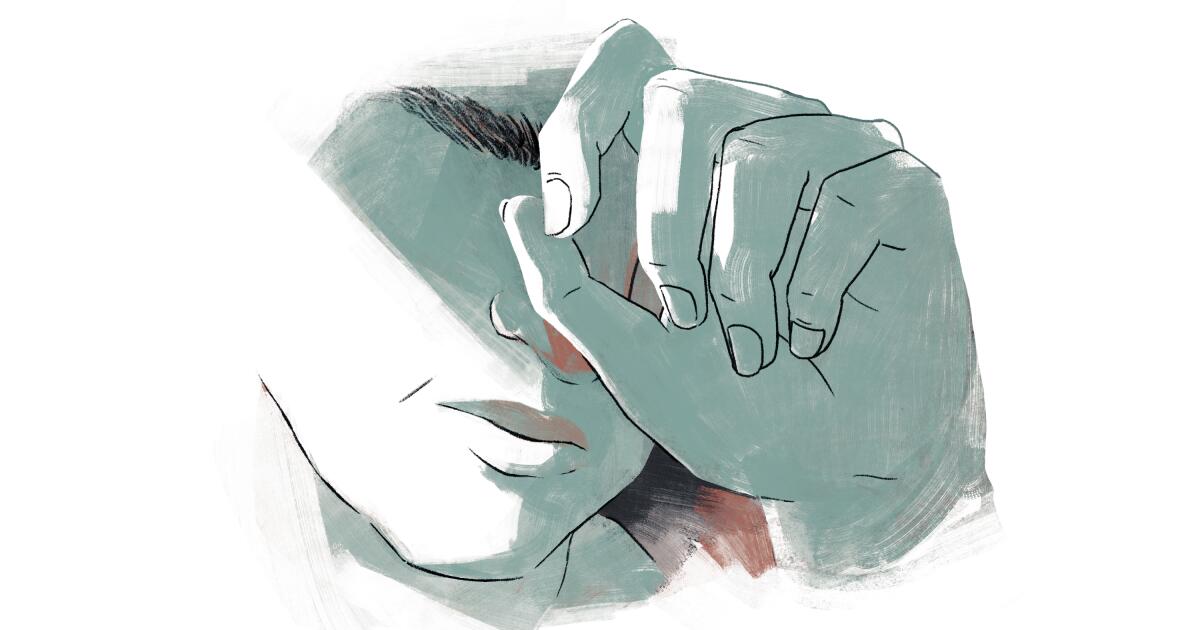Louisiana
Kansas has new abortion laws while Louisiana may block exceptions to its ban

TOPEKA, Kan. (AP) — Kansas is requiring abortion providers to share new patient information with the state and increasing funds to anti-abortion centers, while in Louisiana bills to loosen its restrictive ban face an uphill battle, thanks to Republican supermajorities in both Legislatures.
Democratic lawmakers in Louisiana are pushing bills to add exceptions, including in cases of rape and incest, to the state’s near-total abortion ban. A GOP-dominated House committee began its review of those measures Tuesday, but similar proposals failed last year.
Meanwhile in Kansas, the GOP-controlled Legislature on Monday overrode all four of Democratic Gov. Laura Kelly’s vetoes of measures sought by anti-abortion groups. Starting July 1, abortion providers must ask patients why they are terminating their pregnancies and report the answers to the state, and it will be a specific crime to coerce someone into having an abortion.
Kansas also will offer both direct aid to anti-abortion centers and tax breaks for them and their donors. The aim of anti-abortion centers is to dissuade people from getting abortions while offering supplies, classes and other services.
Anti-abortion groups still exert a strong influence over Republicans in statehouses across the U.S. That’s even after votes on ballot initiatives in multiple states demonstrated public support for abortion rights following the U.S. Supreme Court’s Dobbs decision in 2022 — with the first one in Kansas in August 2022.
“We did not put this to bed,” Kansas Senate Democratic Leader Dinah Sykes said Tuesday. “Those people who showed up to vote who had not voted before need to show up in November to vote.”
The two states, nearly 400 miles (700 kilometers) apart, have dramatically different abortion laws because of their top courts. In August 2022, just months after Dobbs, Louisiana Supreme Court rejected a legal challenge to that state’s near-total abortion ban, allowing the prohibition to go into effect. That was 10 days after Kansas voters decisively affirmed the position in a 2019 state Supreme Court ruling that the state constitution protects abortion rights.
Kansas doesn’t ban most abortions until the 22nd week of pregnancy. Kelly is a strong supporter of abortion rights and has consistently vetoed the GOP-controlled Legislature’s abortion measures.
She is expected to veto a fifth measure sought by abortion opponents, a bill aimed at ensuring that judges order child support payments apply to fetuses so that the mother’s pregnancy expenses are covered. It would be similar to a Georgia law.
Critics believe the Kansas child support measure advances the anti-abortion movement’s long-standing goal of giving embryos and fetuses legal and constitutional protections on par with those of the people carrying them. There are dozens of proposals in at least 15 states aimed at promoting fetal rights, though most have not advanced, according to an Associated Press analysis earlier this year using the bill-tracking software Plural.
“If we’re going to say that fetuses now have legal rights, that is going to affect downstream a whole bunch of other things,” state Sen. Ethan Corson, a Kansas City-area Democrat, said before the measure passed last week.
But Kansas has had a law in place since 2007 that allows people to face separate charges for what it considers crimes against fetuses, and a 2013 state law declares that “unborn children have interests in life, health and well-being,” though it isn’t enforced as a limit on abortion.
The child support bill wouldn’t change state policy on the legal status of fetuses, said Kansas Senate Judiciary Chair Kellie Warren, a Kansas City-area Republican.
“The real impact of this bill is helping women,” she said.
Abortion opponents also have touted the other measures as helping pregnant women and girls, in part by gathering better data about abortion so lawmakers can set clearer policy.
One measure continues to give $2 million a year in direct aid to anti-abortion centers that provide free supplies and services. Another exempts them from paying the state’s 6.5% sales tax on what they buy and gives their donors a state income tax credit.
Kansans for Life, the state’s most influential anti-abortion group said in a statement Monday that the measures “seek to meet Kansans where they are and save as many lives as possible.”
Meanwhile, many Republicans reject the argument that the August 2022 vote means Kansas voters expect lawmakers to stop regulating abortion.
“I think most Kansans would agree that we did want certain safeguards,” said GOP state Sen. Renee Erickson, of Wichita.
Louisiana’s only exceptions to its abortion ban are when there is substantial risk of death or impairment to the patient in continuing a pregnancy and when the fetus has a fatal abnormality that makes a pregnancy “medically futile.”
Earlier this year, lawmakers rejected an effort to let voters decide whether abortions should be legal in Louisiana. The legislation proposed an amendment to Louisiana’s Constitution to enshrine reproductive rights for women, including access to birth control, abortion and infertility treatments.
Public opinion polls nationwide, including one in Louisiana conducted in March 2023 by Louisiana State University, have found that the majority oppose the most restrictive bans in the state.
During the Louisiana House committee’s first review Tuesday of bills adding new exceptions, Democrats shed tears and raised their voices in pleading for exceptions to the current law for rape and incest.
Democratic state Rep. Alonzo Knox, of New Orleans, questioned why young girls “who have been violated in the most unfathomable way” should be forced to give birth and be repeatedly traumatized by the experience.
“Not only that, she gives birth to a child that she has no knowledge or education about how to care for,” he added.
The committee expects to take a vote next week. Sponsoring state Rep. Delisha Boyd, another New Orleans Democrat, said she will try to sit down with Republican lawmakers and GOP Gov. Jeff Landry to see whether she can amend the bill to increase its chances of passage.
Landry, elected last year, replaced term-limited Democratic Gov. John Bel Edwards, who supported some abortion restrictions but was a vocal backer of some exceptions.
___
Cline reported from Baton Rouge, Louisiana.
Copyright 2024 The Associated Press. All rights reserved. This material may not be published, broadcast, rewritten or redistributed.

Louisiana
Growing up in rural Louisiana was hard for many. Nolan Fontenot shares his story

Editor’s Note: On writer Melinda Rawls Howell’s trips to the East Feliciana Council on Aging she’s spoken with many who have shared stories of growing up in and around the Felicianas. While not a Feliciana native, Nolan Fontenot’s stories of his early childhood growing up in another parish are similar to those told by many who grew up in the Felicianas. Here is the first of a two-part series on Fontenot’s life.
Nolan Fontenot’s stories are full of readily recalled dates and memories of family, places, other people and events. They are also glimpses of local, Louisiana, American history and of personal challenges that many families may have experienced.
When listening to Fontenot tell who and where he came from, why he settled in Jackson and went to work at institutions in East and West Feliciana parishes, his reminiscing is tinged with humor and compassion — reflecting his personality and character.
He recalls days of struggle and hardships, kindness and opportunities, growth and change, finding God and ministering to others. He still speaks with a lingering Cajun French accent and sprinkles French expressions/words in his conversation with a slight smile.
A large family in rural America
Fontenot, 86, is one of 16 children born to Feranand Joseph Fontenot and Threase Charles Fontenot. He was born April 26, 1938, during the Great Depression, into a French-speaking, Catholic family on a cotton farm in Tate Cove off Wabash Road north of Ville Platte, in Evangeline Parish.
There were three sets of twins in his family, of which Fontenot is one, and his parents “lost one child at 8 months,” he adds. The first child, Abel, was born in 1918 followed by Lee in 1919, Melton in 1921, Clamie in 1923, by Ethel who was the infant who died, then Eula in 1926, twins Harris and John in 1928, Rosella in 1931, Aline and Louise in 1932, Eva in 1943, Irene in 1936, twins Enola and Nolan in 1938 followed by the last child, Edison, born in 1939.
Growing mostly cotton, the hardship payment and more
The farm was owned by Dr. Arthur Vidine, who Fontenot describes as “very good doctor.” As a sharecropper, his father had “to give one-third of his profits from his cotton and sweet potato crops to the landowner,” he explains. In addition to those crops, he says, they raised some corn, soybeans and rice.
“We were very poor … Evangeline Parish was a poor parish“ and “then came the Depression,” he says.
Except for farming, the only other regular source of income for the family was an $8-a-month “hardship” payment. This was because they lived near “the Cabot carbon-black plant” which “had no filters” and dropped airborne pollution onto everything, he says.
“The closer your farm was to the plant the more money you were paid” and “the carbon affected the color and price we got for the cotton,” he adds.
His father plowed the cotton fields behind one of two horses they owned — Honey or Bella. As a child, Fontenot says he “couldn’t wait until he was big enough” to help plow.
He says father “walked his life away.” His father, Fontenot says, “never owned an automobile … he had a wagon and a buggy.”
For meat they had some chickens and ate “coon” sometimes, he says. They ate crawfish but his mother “did not like to cook them,” he adds.
The cattle on the farm belonged to the landowner but the family could milk the cows in exchange for taking care of them, he adds. There were two barns on the site — one could hold “1,600 bales of hay for the cows in winter, “ he says. The other one was the stables and housed the buggy and wagon.
In the town of Ville Platte, they got store-bought necessities on credit at the store of Henri Vidrine, the brother of Dr. Vidrine. He remembers his sisters’ dresses were made from the cloth from flour sacks.
The mud house, chores, siblings, school
Fontenot’s family first lived in a one-bedroom house but they eventually moved into a three-bedroom house nearby on the same farm. He calls it the “mud house.” The wood-frame structure “had walls made of mud, twigs and Spanish moss that were whitewashed inside and covered with shiplap outside,” he says.
The house had a two-sided fireplace, he adds.
Drinking water came from a cistern and a small amount of “coal oil was added” to discourage mosquitoes. The water was also “strained through cloth to remove mosquito larvae.” There was “an outhouse for the girls to use and the barn for the boys,” he says.
Like most children growing up on a farm he helped with chores. After moving to town as a youth, he briefly worked at a creamery and was hired out to dig sweet potatoes and pick cotton. As for picking cotton he “wasn’t very good at it,” he says, shrugging and tilting his head slightly and that he was “slow” and, of course, “didn’t like the heat.”
As children they “went barefoot unless it was extremely cold,” he says. One of his older sisters, Irene, who he remembers as having a ready laugh, was the one who would defend them, when needed, on the school bus. Another sister, Rosella, was in charge of washing the kids in the evening but conditions were very basic — a shared bowl of water and cloth.
He remembers one of his older brothers, Melton, married at 16 and moved away to farm a place south of Ville Platte. Another older brother, Lee, was in the United States Army for eight years serving in the military police during World War II from 1941-1945.
Lunch during the school year was often “milk pudding sandwiches made on homemade bread” and “it was good,” he says.
He remembers that his only younger brother, Edison, did not want to go to school when it was his time. He says his little brother cried and cried and, arriving at school with several big pecans in his pocket, tried to give them to the teacher so she would let him stay with his big brother. “She probably didn’t even understand him” and that his prized pecans were an attempted bribe, he says.
The radio and electricity
The family had a box-shaped radio, which was powered by a large free-standing battery and connected to a tall antenna. They listened sparingly and mostly to the French programs and music, he says.
His parents did eventually get electricity on the farm in the 1950s.
It wasn’t too long afterward that they all moved into town, he says. Fontenot’s father died at 70 in 1969 and his mother lived to be 76 and passed away in 1977.
Louisiana
U.S. Sen. Bill Cassidy touts infrastructure grants awarded to Louisiana municipalities, utility districts during Donaldsonville event

Louisiana U.S. Sen. Bill Cassidy released a statement after awarding more than $52 million in grants from the Infrastructure Investment and Jobs Act to municipalities and gas utility districts during an event May 17 in Donaldsonville.
“This money will decrease the risk of explosion and decrease the amount of wasted methane which people are paying for, thus saving folks money,” Cassidy said in the announcement. “It also cleans up our environment. It’s a good investment of taxpayer dollars for the benefit of folks in Louisiana.”
In an effort to safeguard natural gas pipelines, nearly $1 billion will be awarded over a five-year span throughout the country with $392 million being awarded this year, the senator added.
As previously reported, the cities of Donaldsonville, Port Allen and Walker, the town of Berwick, and gas utility districts in East Baton Rouge, East Feliciana and West Feliciana parishes were grant recipients.
Similar funding was awarded last April with more than $27 million going to municipalities in south and central Louisiana.
Per Cassidy, the IIJA has awarded more than $9.1 billion to Louisiana since the president signed it into law in late 2021.
The funding has gone toward repairing bridges, building flood protection systems and extending broadband in rural areas.
Cassidy noted Donaldsonville Mayor Leroy Sullivan’s city received the largest grant, which was $20 million to replace 27.3 miles of natural gas infrastructure.
Sullivan said the gas line improvement grant from the Pipeline and Hazardous Materials Safety Administration “is a pivotal moment for the City of Donaldsonville.”
“Sen. Cassidy was instrumental in helping us secure this funding and we are deeply grateful for his unwavering support.,” the mayor said in the announcement. “This project is an investment in the future of our city and positions our community for continued growth.”
Gonzales Weekly Citizen and Donaldsonville Chief, part of the USA Today Network of Louisiana, cover Ascension Parish and the greater Baton Rouge area. Follow at facebook.com/WeeklyCitizen and facebook.com/DonaldsonvilleChief.
Louisiana
St. Tammany library board members sue over removal • Louisiana Illuminator

Three St. Tammany library board members removed after a years-long fight over book content are suing the parish council and one of its district representatives in an attempt to block their removal.
Their federal lawsuit comes after the parish council voted earlier this month to replace five of the six members of the St. Tammany Library Board of Control, a volunteer body that oversees the parish library system. Their removal culminated months of contentious fights.
Conservative activists in the parish, led by the far-right St. Tammany Library Accountability Project, attempted to ban more than 150 books it deemed sexually explicit. Most of the titles challenged have LGBTQ+ themes. The library board repeatedly refused to limit access to the books, rejecting arguments that the books were sexually explicit. Their refusal put them crosswise with the new, more conservative parish council that took office earlier this year.
The three board members — Bill McHugh, Anthony Parr and Rebecca Taylor — are suing the St. Tammany Parish Council and Councilman David Cougle, a founder and attorney for the Accountability Project who led the charge to remove the members. The plaintiffs have asked the court for a temporary restraining order on their removal, which would allow them to stay in their positions while the lawsuit plays out.
GET THE MORNING HEADLINES DELIVERED TO YOUR INBOX
In a statement, the plaintiffs emphasized the lawsuit was undertaken by them as individuals, not as an official action by the library board. They also noted Kelly LaRocca, the parish’s library director, is not involved in the suit.
Cougle has not yet responded to a request for comment for this report.
On May 4, the parish council voted to replace five board members, ostensibly because the council had discovered the board was not serving in staggered terms, as required by state law. But rather than staggering the current board members, the council used the opportunity to remove board members that resisted book restrictions.
That violated the First Amendment rights of the ousted board members, the plaintiffs charge.
“Plaintiffs were engaged in constitutionally protected activity when they spoke and acted at Library Bord [sic] meetings, as well as when they spoke out on matters of public concern such as the controversy over books with LGBTQ themes and characters, the presence or absence of sexually explicit material in libraries, whether or not certain materials available in libraries is ‘pornography’ or constitutes ‘obscenity,’ and whether and how minors have access to such materials,” the lawsuit reads.
The lawsuit alleges the concern over staggered terms was an “obvious ploy” used to retaliate against their protected speech and their refusal to restrict access to books.
“Supreme Court precedent has focused “not only on the role of the First Amendment in fostering individual self-expression but also on its role in affording the public access to discussion, debate, and the dissemination of information and ideas,” the lawsuit says. “And it has recognized that ‘the State may not, consistently with the spirit of the First Amendment, contract the spectrum of available knowledge.’”
The suit has been filed in federal court for the Eastern District of Louisiana. If the court opts to grant a temporary restraining order, the existing library board would be allowed to continue serving pending the outcome of the lawsuit, which seeks to permanently block the council’s resolution to remove members.
“Preventing the Parish Council from engaging in unlawful patronage dismissal will preserve the integrity and independence of the Library Board, rather than leaving it subject to the political whims of the Parish Council,” the lawsuit says.
The lawsuit also says allowing the members to continue serving would continue to protect the public’s constitutional rights to receive information by maintaining their access to library books.
-

 News1 week ago
News1 week agoSkeletal remains found almost 40 years ago identified as woman who disappeared in 1968
-

 Movie Reviews1 week ago
Movie Reviews1 week ago“Kingdom of the Planet of the Apes”: Disney's New Kingdom is Far From Magical (Movie Review)
-

 World1 week ago
World1 week agoIndia Lok Sabha election 2024 Phase 4: Who votes and what’s at stake?
-

 World1 week ago
World1 week agoUkraine’s military chief admits ‘difficult situation’ in Kharkiv region
-

 World1 week ago
World1 week agoCatalans vote in crucial regional election for the separatist movement
-

 Movie Reviews1 week ago
Movie Reviews1 week agoAavesham Movie Review
-

 Politics1 week ago
Politics1 week agoNorth Dakota gov, former presidential candidate Doug Burgum front and center at Trump New Jersey rally
-

 News1 week ago
News1 week agoTrump, Reciting Songs And Praising Cannibals, Draws Yawns And Raises Eyebrows














